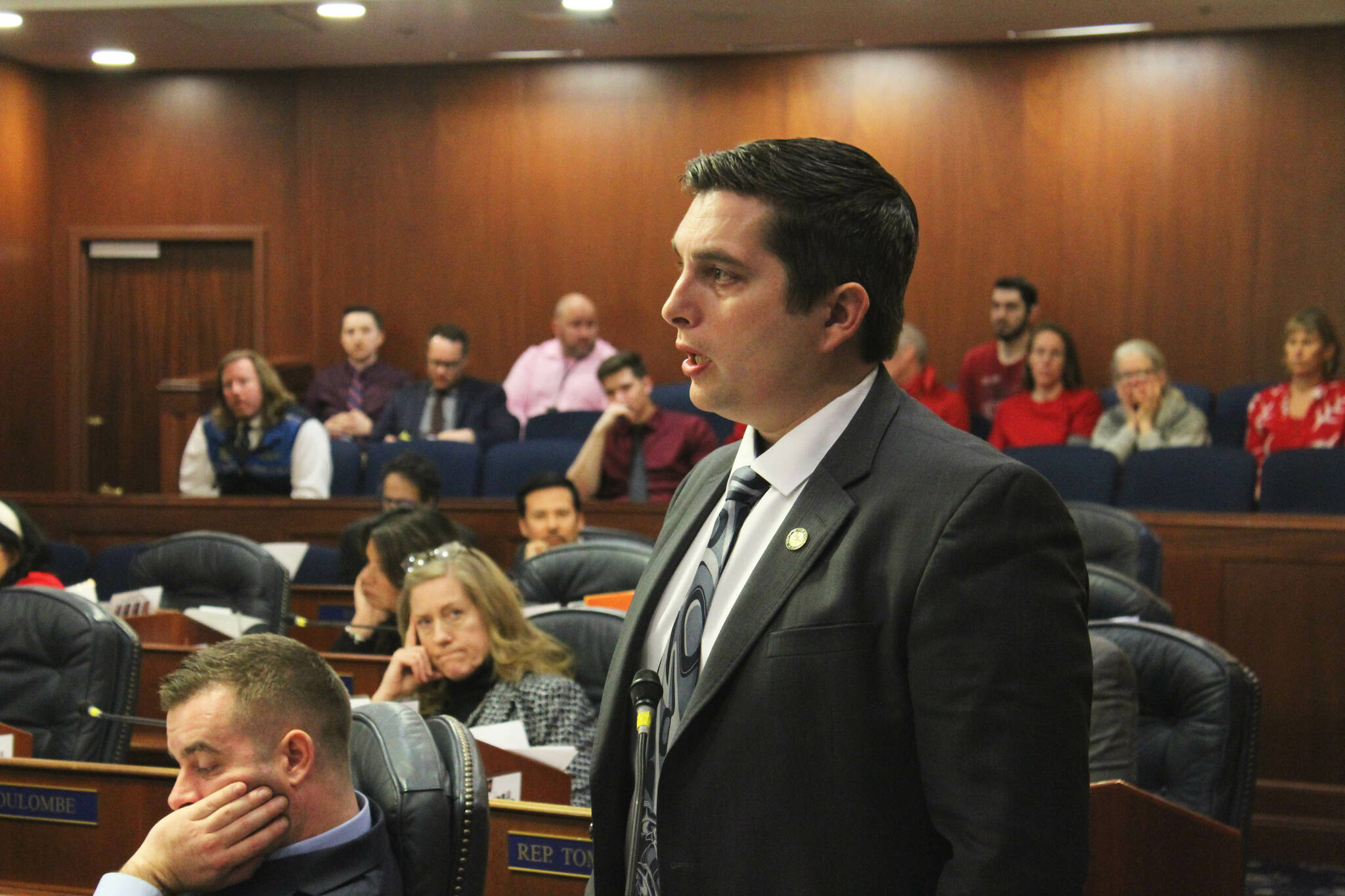Leaders from the two home-school programs that serve roughly one in four school-aged children on the Kenai Peninsula joined Rep. Justin Ruffridge for a virtual town hall meeting Wednesday to talk about the future of Alaska’s allotment program for correspondence students.
The fate of that program, which dispenses money to families who home-school through a program affiliated with their local school district, is in limbo following a superior court ruling handed down last month.
Judge Adolf Zeman wrote that the sections of state law authorizing the program violate the part of the Alaska Constitution that says public funds cannot be used to benefit private or religious educational institutions.
Zeman on Thursday issued a final judgment on the ruling and delayed its implementation until June 30, 2024. As reported by the Alaska Beacon, that gives the state and lawmakers roughly two months to act on the parts of state law declared unconstitutional, unless the pause is extended by the Alaska Supreme Court.
If the ruling goes into effect, roughly 24,000 students across Alaska, including about 2,500 on the Kenai Peninsula, will be affected. Families with children enrolled in either Connections Homeschool, run by the Kenai Peninsula Borough School District, or Interior Distance Education of Alaska (IDEA), receive $2,700 per student per school year to help pay for education materials.
Ruffridge on Wednesday said he receives home-school allotments for his children and was home-schooled as a child.
In the wake of Zeman’s initial ruling, both the House and Senate education committees brought forward legislation that addresses allotments. Ruffridge, who co-chairs the House Education Committee, walked the nearly 100 attendees of Wednesday’s town hall through an updated version of House Bill 400 heard by committee members on Wednesday morning.
Ruffridge summed up the bill as establishing two certainties: first that individualized learning plans be created and second that allotments be paid in accordance with the Alaska Constitution. The version of the bill the committee is working on as of Wednesday morning defers the job of regulating allotment use to the State Board of Education and Early Development.
The bill would put the onus on the state education board to regulate what correspondence allotments may or may not be spent on. Ruffridge acknowledged the bill subjects allotment regulations to the political persuasion of state board members, who are appointed by the governor, but said that group is already tasked with crafting educational regulations.
“That does seem to be putting the burden in the right place,” Ruffridge said.
Gov. Mike Dunleavy on Wednesday cast doubt on whether action by lawmakers in response to the ruling was the most effective path forward given uncertainty about court decisions that haven’t been made yet. He also questioned whether there is enough time left in the current legislative session to get any legislative initiatives across the finish line — the last day of the current legislative session is May 15.
“It’s difficult now to do a statutory fix if these are all unconstitutional,” Dunleavy told reporters. “You have to have a constitutional fix.”
Ruffridge told town hall attendees that the language of House Bill 400 is designed to be flexible, so that state law wouldn’t need to be rewritten if the issue is appealed to a higher court or specific changes to allotment spending are needed.
Dunleavy and Deputy Attorney General Cori Mills on Wednesday said the ruling handed down by Zeman has broader implications than just correspondence programs. That’s because Zeman says it’s unconstitutional for public funds to go toward private organizations, as opposed to private institutions.
“If what the court says is true, then you can’t give any money to a private organization for an educational purpose,” Mills said.
Kenai Peninsula residents are already weighing in on the issue of allotment use through public comments submitted to the Alaska Legislature.
Shona DeVolld, who teaches writing classes at Kenai Peninsula College, wrote in an April 28 letter to lawmakers that Zeman’s ruling “has put (her) child’s education and (her) family’s financial security in jeopardy.”
“Without my income – both as a vendor and as a KPC adjunct faculty member – and without my daughter’s allotment, not only will our day-to-day family expenditures be drastically affected, but we will also not be able to pay for the educational goods and services Sara needs out of pocket, so we are being hit triply hard,” DeVolld wrote.
Homer resident Landa Baily told lawmakers that her son attended a correspondence home-school program, but that extracurricular activities were paid by her family out of pocket. Baily said she supports correspondence programs, but does not support allowing public funds to pay for private or religious school programs.
“Please continue your efforts to ensure that by the end of this regular legislative session, the correspondence school program is restored to the procedures in place prior to the unconstitutional 2016 change,” she wrote.
House Bill 400 will be heard again in the House Education committee on Friday, May 3, at 8 a.m. More information about the bill can be found at akleg.gov.
Reach reporter Ashlyn O’Hara at ashlyn.ohara@peninsulaclarion.com.

